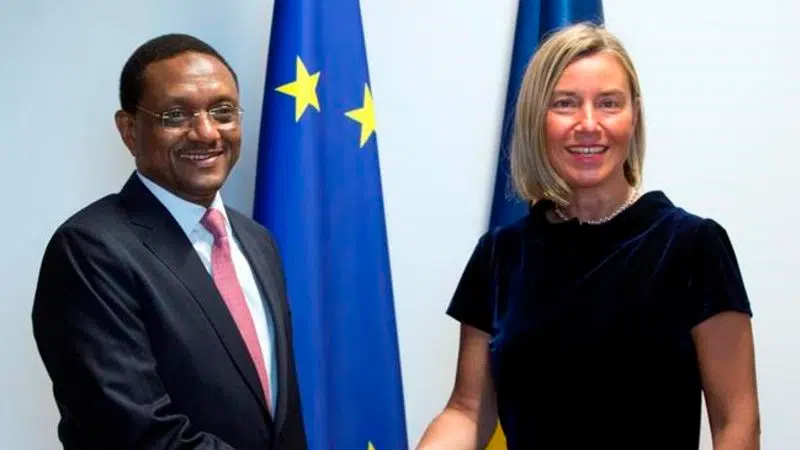
EU powers to discuss Iran deal as Pompeo heads to Brussels
BRUSSELS — European Union powers were meeting Monday to thrash out ways to keep the Iran nuclear deal afloat, and were likely to hold talks with U.S. Secretary of State Mike Pompeo amid rising tensions between Washington and Tehran.
The meeting between the foreign ministers of Britain, France, Germany and EU foreign policy chief Federica Mogherini comes as the Europeans struggle to keep financial supply lines open to Iran to offset the impact of U.S. sanctions on the Islamic Republic’s shattered economy,.
“We in Europe agree that this treaty is necessary for our security,” German Foreign Minister Heiko Maas told reporters in Brussels. “Nobody wants Iran to get possession of an atomic bomb and that’s been achieved so far.”
